Superhero shows: A look back at how they've fared at the Emmys

The Emmys have caught up with the times.
Watchmen's 11 wins at the 2020 Emmy Awards, including Regina King for Outstanding Lead Actress in a Limited Series or Movie and Yahya Abdul-Mateen II for Outstanding Supporting Actor in a Limited Series or Movie; seemed to mark the comic book-inspired HBO drama an outlier.
But, with 2021's Emmy nominations, which recognized WandaVision, The Boys, and The Falcon and Winter Soldier, superhero and comic book shows are finally getting their due from the Television Academy.
While we wait to see if any of these series can bag awards in the main acting, directing, and series categories, marking Watchmen's 2020 wins as a changing of the guard or the start of a new Emmys trend, we're taking a look back and the notable superhero (and epic poem) shows that took home the gold over the years. Warning: This is a very short list, though if this year's noms are any indication, it's likely to grow.
Lindsay Wagner, <em>The Bionic Woman</em> (1977)
Playing both The Bionic Woman, scientifically-enhanced Jamie Sommers, and her surgically-created doppelg?nger, Lisa Gallaway, in the two-part episode "Deadly Ringer" earned actress Lindsay Wagner the first ever Outstanding Lead Actress in a Drama Series win for a science-fiction television series. For Wagner, though, the appeal of her groundbreaking character, spun-off from The Six Million Dollar Man, wasn't the strength that came from the former tennis player's bionic parts — it was her humanity. "I didn't want her to be like a robot. I wanted her to be as real as possible and because that's what she was," Wagner said on The Dinah Shore Show in the late '70s. Wagner beat out stiff competition at the Emmys in '77, including one of Charlie's Angels (Kate Jackson), Sada Thompson, who was nominated four times for her role in Family, Angie Dickinson for Police Woman, and Michael Learned from The Waltons. Accepting her award, Wagner seemed to hint at the difficulties that came with playing a a sci-fi character with special physical abilities, joking on stage, "As a lot of you probably know, doing a television series can be a," "real b---ch, she mouthed to audience laughs, before thanking those who held her "together, emotionally, spiritually, [and] mentally."
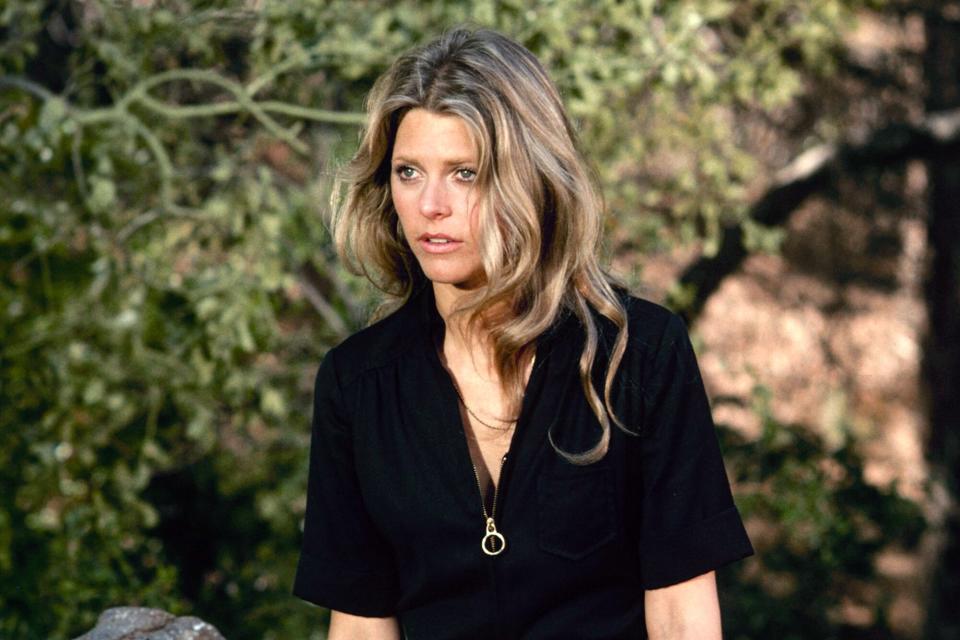
Mariette Hartley, <em>The Incredible Hulk</em> (1978)
Mariette Hartley's Emmy nomination for Outstanding Lead Actress in a Drama Series for playing Dr. Carolyn Fields in the two-part season 2 premiere of The Incredible Hulk in 1978 was a first for the comic's franchise. And her win at the 1979 Emmys, became the first Emmy win for an actor in a series based on a Marvel comic. The episode saw her playing a terminally ill psychiatrist, who employed hypnotherapy to try and cure Dr. David Banner (Bill Bixby) — or at least give him control over becoming The Hulk. During the characters' brief time together, their feelings for eachother grew, and the pair married, though, sadly, her disease progressed rapidly and she died, leaving Banner alone again. Hartley was nominated for Emmys six times, including a year later, again in the Lead Actress category, this time for The Rockford Files. Hulk, though, remains her lone win. Coincidentally, The Incredible Hulk was created by filmmaker Kenneth Johnson, who also behind The Bionic Woman.
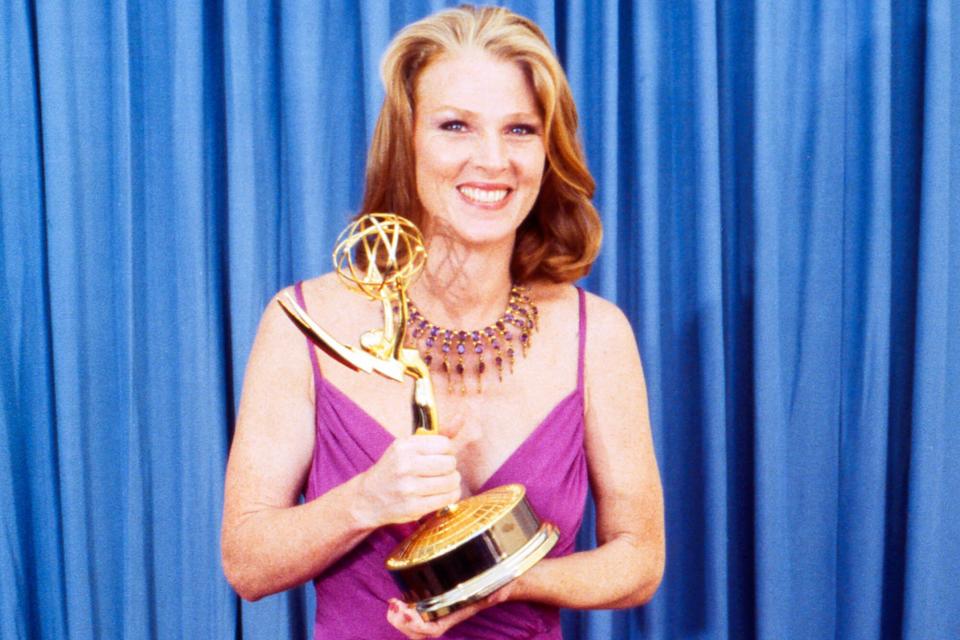
Andrey Konchalovskiy, <em>The Odyssey</em> (1997)
Long before The 300 set a new tone for swords and sandals projects, there was 1997 TV miniseries The Odyssey, which earned Andrey Konchalovskiy the Outstanding Directing for a Miniseries of a Special Emmy Award. The adaptation of Homer's epic poem aired across two nights on NBC in May 1997, boasting a cast including Armand Assante as Odysseus, Greta Scacchi as Penelope, Isabella Rossellini as Athena, and Vanessa Williams as Calypso, with Francis Ford Coppola as one of the series' executive producers. The Odyssey earned five Emmy nominations in 1997, including for Outstanding Miniseries, but outside of its director award, it only picked up one other win — Outstanding Special Visual Effects.
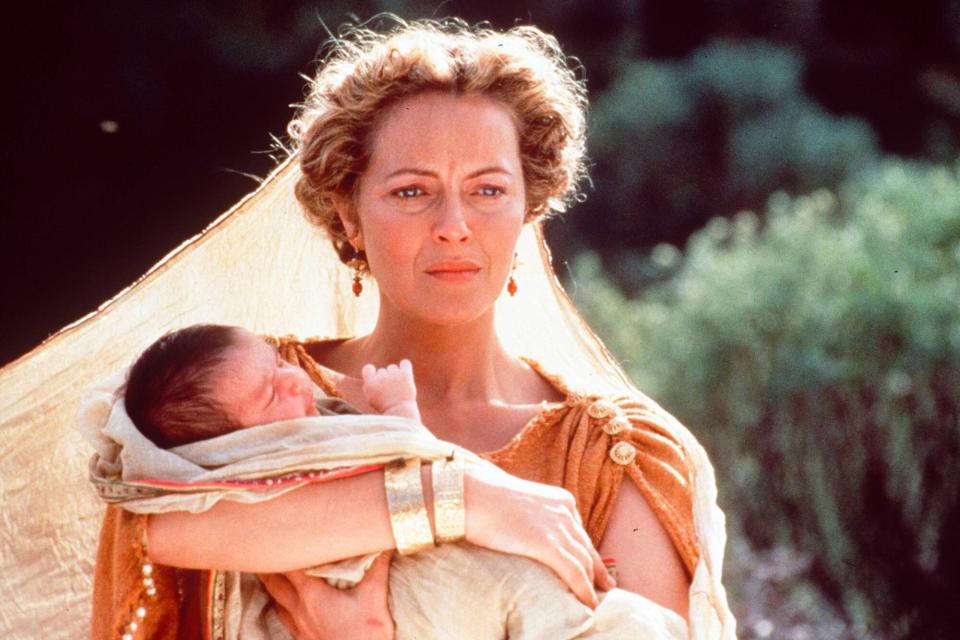
Regina King, <em>Watchmen</em> (2020)
By the time Damon Lindelof's Watchmen made its bow on HBO in 2020, comic book shows and films had become mainstream. Watchmen, though, stood out from the crowd for taking aim at the rise of white supremacy, and looking at the lasting effects of the racial violence of the Tulsa Massacre on future generations (EW called it, a "high-energy American saga of racial terrorism and masked identity"). Set in the Watchmen world first created by Alan Moore and Dave Gibbons in the comic, the series reunited Regina King with her The Leftovers boss Lindelof, as she played Angela Abar/Sister Knight, a role that would win her her fourth Emmy (out of five career-spanning nominations) — Outstanding Lead Actress in a Limited Series or Movie. King accepted her award virtually during the pandemic (wearing a "say her name" Breona Taylor T-shirt), and — via Skype — thanked her executive producer. "Thank you for choosing all of us to join this journey as you stepped outside of your comfort zone, and led us on a journey where we could bring art to truth to power," King said in her speech.
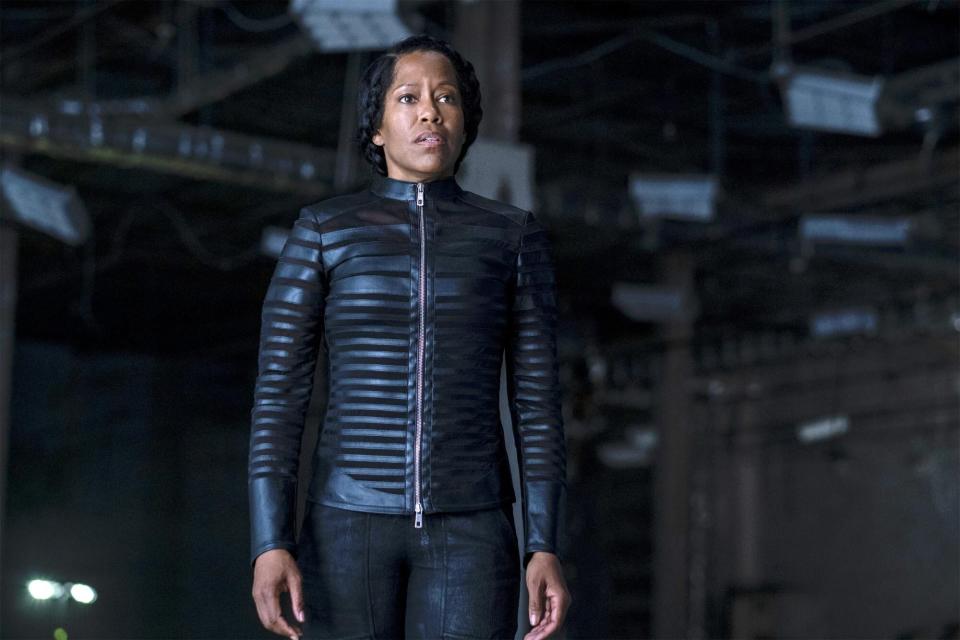
Yahya Abdul-Mateen II, <em>Watchmen</em> (2020)
Yahya Abdul-Mateen II experienced a moment of shock when his name was called as the winner of the Outstanding Supporting Actor in a Limited Series or Movie Emmy — for playing Cal Abar/Dr. Manhattan in Watchmen. It was, after all, his first nomination, and therefore first ever win. (Two of his costars, Jovan Adepo and Louis Gossett Jr. were also nominated in the same category). In his speech, though, he praised costar Regina King for being "the best scene partner" he "could ask for," and the substance of the material he had to explore in the limited series, which aired the year before Black Lives Matter protests sprung up across America, but while the strains of white nationalism grew. "Watchmen was a story about trauma, it was a story about the lasting scars of white domestic... terrorism, it was a story about police corruption, and brutality," Abdul-Mateen said as he accepted his award (again, virtually). "But, in the midst of all that, it was also a story about a guy who came down to Earth to reciprocate to a Black woman all the love that she deserved. He'd offer her sacrifice and support, passion, protection, and he did all that in the body of a Black man, and I'm so proud that I was able to walk in those shoes."
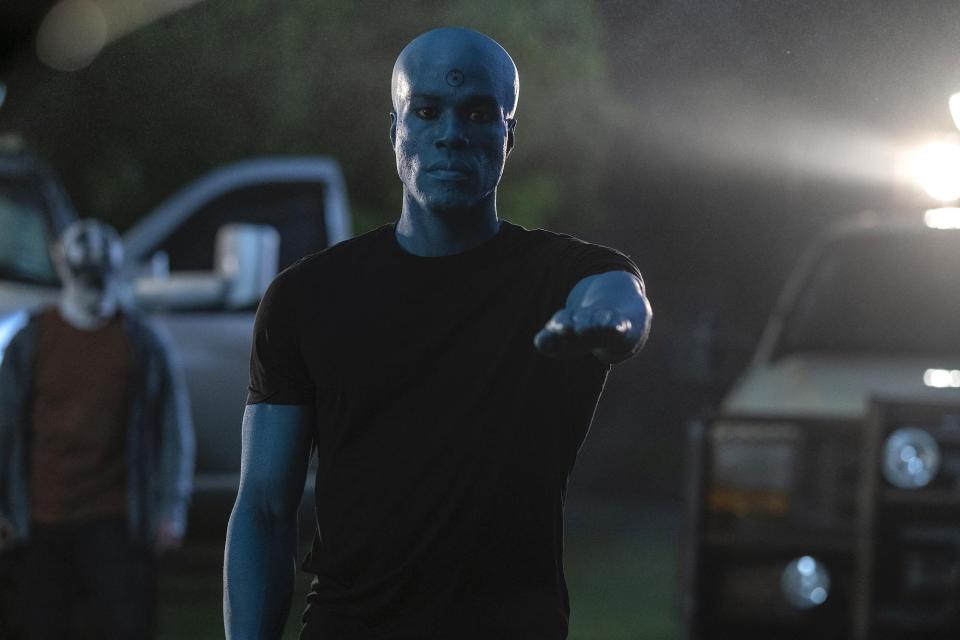
<em>Watchmen</em> (2020)
Going into the Emmys, Watchmen was up for 26 awards — the most of any show in the 2019-2020 television season. It faced competition in the Limited Series category from the star-powered Mrs. America (FX on Hulu), featuring Cate Blanchett and Uzo Aduba, bestseller-to-screen series Little Fires Everywhere (Hulu), the buzz-garnering Unorthodox (Netflix), and the emotionally-charged Unbelievable (Netflix), but 2020 was Watchmen's year, with creator Damon Lindelof accepting the award on behalf of the show's team in what appeared to be his living room. While wearing a T-shirt reading, "Remember Tulsa '21" (2021 marked the 100th anniversary of the Tulsa Massacre), Lindelof thanked the writers of the show for sharing their stories for the series and during his speech he imparted the lessons he learned from them. "History is mystery broken into a million puzzle pieces and many are missing," Lindelof said. "We know where those pieces are but we don't seek them out because we know finding them will hurt. Sometimes we cause that hurt. Maybe we even benefited from it. But we have to name it before we can repair it. Be careful, be clumsy, run hot, stay cool, be the bull in the China shop. Pick up what you broke and glue it back together. Don't stop until it's great. Affirm. It's never great enough. Dissent. Be consistent. Embrace paradox. Never contradict yourself. And finally, stop worrying about getting canceled and ask yourself what you're doing to get renewed."
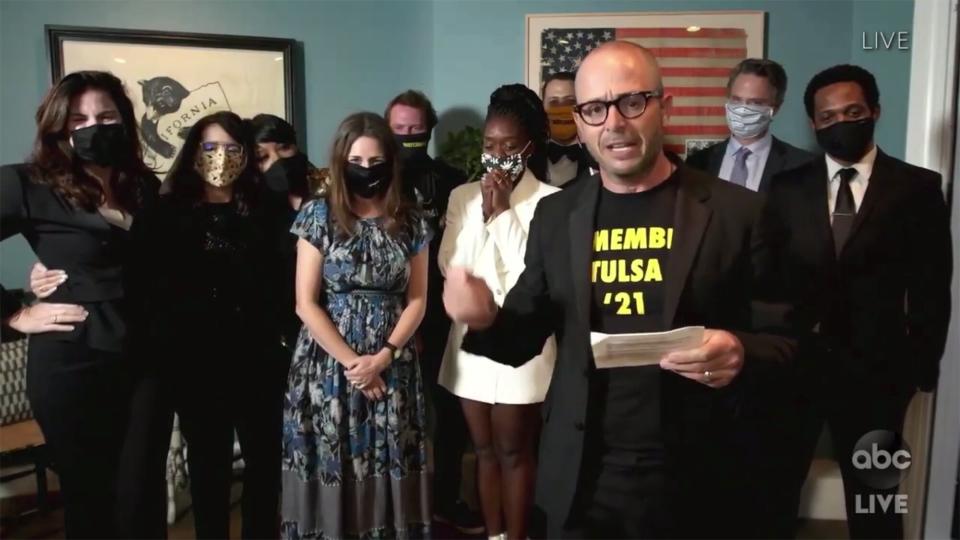
Damon Lindelof and Cord Jefferson, <em>Watchmen</em> (2020)
Among Watchmen's 11 Emmy wins in 2020 was the award for Outstanding Writing for a Limited Series, Movie or Dramatic Special, an award that recognized the depth of respect the Academy had for the comic book-inspired drama, and its raw themes. Presented to show creator Damon Lindelof, and executive story editor Cord Jefferson, Jefferson praised the "committee" of writers who brought complexity and emotional resonance to the HBO limited series. Jefferson, who spoke for himself and Lindelof, also paid tribute to the victims of the 1921 Tulsa Massacre, an incident that in the near century since, had become hidden history. "I think I would be remiss if we didn't recognize all the men and women who died in the Tulsa Massacre in 1921 — the original sin of our show," he said. "This country neglects and forgets its own history at its own peril often and I think that we should never forget them."
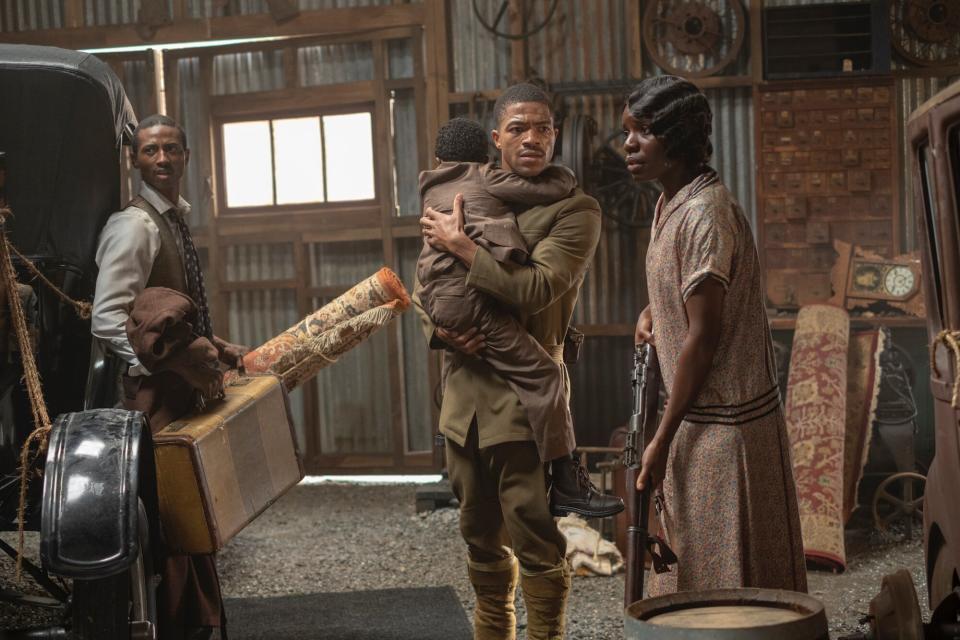
Sign up for Entertainment Weekly's free daily newsletter to get breaking TV news, exclusive first looks, recaps, reviews, interviews with your favorite stars, and more.
Related content:
